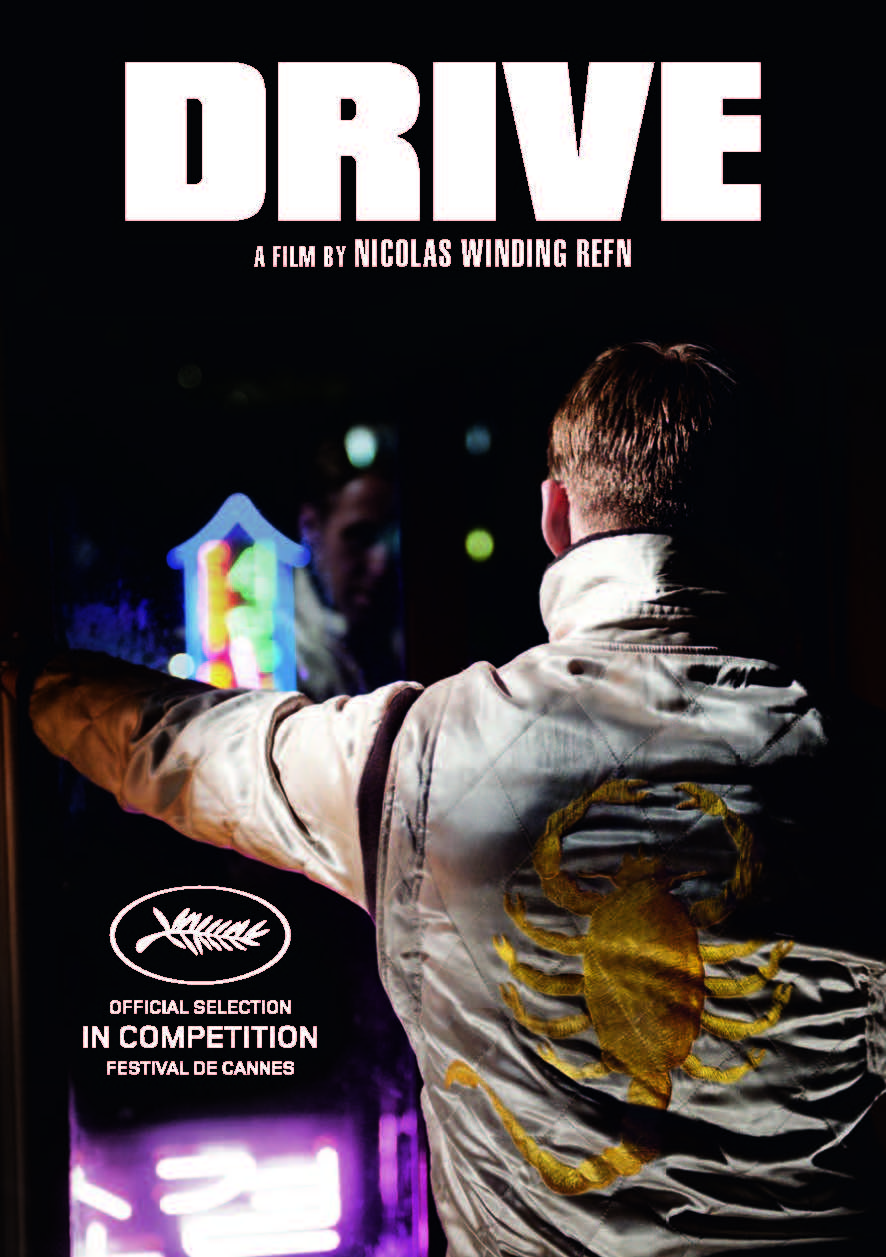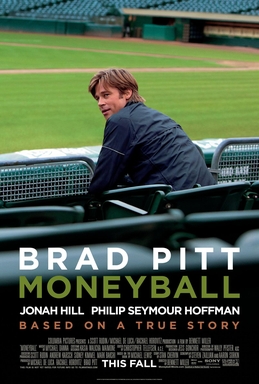DO NOT READ IF YOU HAVEN'T SEEN THE MOVIE YET, UNLESS YOU WANT TO BE SPOILED, THEN FINE. DO WHATEVER YOU WANT.

There is no mistake about it. "Drive" knows exactly what it's trying to be, something I said in my review of the film. I knew that as I was watching it. It's a sort of postmodern meta-film, if that makes any sense. Just think, Tarantino. I get the vibe with Drive in a way I get it from Tarantino's films. With QT, you know that no matter what, the film you're seeing is the exact precise vision that QT wanted it to be. More than that, if it feels cool, if it feels cinematic, if it packs all the right entertaining punches... it's because Tarantino wants it to come out that way. This is best exemplified with the end of "Inglorious Basterds" where Aldo Raine tells his comrade "I think I may have just made my masterpiece." Every single feeling and emotion you got out of that film is what Tarantino intended. He knows what drives a movie, what makes films truly entertaining, and he plays that up to the umpteenth degree with his films.
Now I'm not entirely familiar with Nicolas Winding Refn's films, I'm just starting to get into him, but you can tell that "Drive" goes for the same jugular. It's a film that is completely comfortable in its style. It wants to be about the style. Yes, it's self-consciously cool. Much like a guy walking down a street wearing a leather jacket and a pair of sunglasses. With the collar up. You know what he's trying to do. Of course, it takes a truly gifted filmmaker to be self-consciously cool and actually succeed. Refn definitely succeeds with "Drive," it's everything he wanted the film to be.

That's not to say "Drive" is only about style, but style is what dictates and keeps in the film in motion. Style is the driving pulse of the film. It's the driving pulse of Ryan Gosling's character. Refn displays The Driver in a specific sort of way. His scorpion jacket, his driving gloves, the way he acts, the way he emotes. There is a very careful method to The Driver's madness, something that the writer, director, and actor all must've collaborated on in order to make it a perfect realization. Like I said in my review, it's much like in Le Samourai.

Jean-Pierre Melville's "Le Samourai" has the similar kind of feel although in a style that is entirely of its own. Both films elicit a specific type of style through its lead character, just in different ways. Yet, the effect is apparent in both films. By being very specific with how each character walks and talks, any sudden change or action that disrupts those motions becomes very important. You are forced to watch their every move.
What truly sets "Drive" apart is that it's not just about The Driver. Every single stylistic choice in the film is important. From the music selection (a brilliant composite of '80s-inspired synth-heavy songs) to the hot pink typography to the soft, gentle moments between the romantic leads and to the sudden bursts of violence that is so graphic that it's nearly off-putting. It's all important. The reaction you get from the violence is the reaction you're supposed to have. The extreme juxtaposition between romance and violence is perfectly demonstrated in the elevator scene. If you didn't think Refn knew what he was doing, you must look at the elevator scene again. If you watched "Drive," that scene should be engrained in your memory.
The scene starts out as a very touching and beautiful moment between Driver and Irene. Up until then, the romance between the characters was strongly suggested but never acted upon. See, Refn has been playing a sick game on us all along. While he has been building up this romance between Irene and Driver from the very beginning, he's also been building up the tension and violence that involves the Driver and surrounds Irene. That violence and danger that Driver has been trying to keep Irene away from along with that budding romantic tension between them comes to this, in the elevator. Driver and Irene are about to get inside the elevator when it's discovered there's another man inside the elevator. Right away you know exactly who that man is and what's about to come with him, but what you don't expect is for there to be a pause in the violence (that has been getting more and more gruesome and suggestive at this point) for a tender moment between Driver and Irene. The Driver takes Irene aside and kisses her. Then, right afterwards, he grabs the man in the elevator, takes him down, and thus begins the crescendo of extreme violence as Driver beats the man excessively and horrifically. In such a way that, understandably, scares the shit out of Irene.

But it's abundantly clear that Refn is trying to say something with this scene. That scene is what the movie is all about. It's that juxtaposition that makes the movie different than your standard action/thriller. By presenting the romance and the violence in these extreme fashions, it presents to you a problem. The problem being that by succumbing to and committing these horrific acts of violence (violence similar to what the main villain Bernie Rose commits shortly afterwards), the Driver is stepping into the very same world that he wants to keep Irene out of. Before, he was just an accomplice whether he admitted it or not. He was just the getaway car. He won't help you commit the crime, he'll just drive you to where you need to be afterwards. He was always inside the car, he was never committing the violence himself. And part of that could be completely self-sustaining. Since you don't get any kind of exposition that clues you in onto what kinda person the Driver was before you meet him in the movie, you can only draw your own conclusions from his actions (or lackthereof). What his actions before he meets Irene may suggest is that, for at least in the past five to six years, he has mostly been keeping to himself. He's a stunt driver by day and a getaway driver by night. Nothing more, nothing less. He only really has one friend, Shannon, although he is more of a mentor than anything else.
So, it's just the Driver, alone... until he meets Irene and her son. There, he develops a deep connection. A connection that goes beyond words, just emotion. It's like the Driver and Irene share a deep hidden connection that we don't really understand, we can just feel it. And Refn takes his time with this because he needs to. He needs to make you realize that this connection is important and you need to watch as it develops and grows into something that different than what you normally see in movies like these.
See, when I called the Driver and Irene "romantic leads," I was being slightly disingenuous. Even though it's quite clear that there is a romance budding between the two, what is truly happening is that before this, the Driver never had anyone he had connected with. That made it easy for him to put his life on the line as a stunt driver, or even as a getaway driver. He has no connections with the people he's trying to help escort. Nor does he have any connections with them before or after they commit their crime. But now, by getting involved with Irene, her son, and eventually, Irene's husband... he has finally made those connections. If Refn didn't spend as much time on that relationship as he did, it would undermine the lengths Driver goes through in order to protect all of them.

In fact, once you see that Irene's involvement with her husband, Standard doesn't stop the Driver from keeping that connection, that should clue you in that this more than just two people forming a romantic connection. The fact that the Driver wants to protect Standard and his family once he senses that Standard is in trouble makes the Driver's relationship with them much deeper than previously imagined. And this is when you begin to understand the significance of the song "A Real Hero" being played when the Driver first hangs out with Irene and her son.
Why does the Driver feel a connection with Irene? And with her son, Benicio? We can't really say. We don't know what this stirs up inside the Driver's mind. For all we know, he could've been a father himself. But, what would it mean for us if we knew that kind of information? The fact that we don't know makes his actions that more intriguing and heroic. It's not just that the Driver wants to protect Irene and Benicio because he wants to be romantically involved with Irene and act as a father figure to Benicio. It's more than that. The Driver, it must be concluded, views himself as a protector of this family. Their innocence may be what draws the Driver to them. And he wants to do everything he can to maintain their innocence, to keep them away from any danger or harm, including with Standard.

But of course, once he sees that will be impossible due to Standard's criminal connections, he finds it necessary within himself to get involved. And once he does, all bets are off. He has no regard for himself. He makes it his mission to protect Standard's wife and children at all cost. While doing this, he commits very horrible acts of violence against those he concludes could be keeping Irene and Benicio in danger. And, in doing so, he will forever be associated in these acts. So by going through these lengths in order to protect Irene and Benicio, the Driver has now made it impossible for him to be involved in their lives. Because, if he chooses to remain involved with him, he would be putting them in the very type of danger he had been trying to keep them away from. Plus, it was never about being with Irene, it was about protecting her and her son's innate innocence.
All of this is more-or-less echoed by Bernie Rose (played by Albert Brooks), who agrees to keep Irene and Benicio's anonymity but cannot promise the same for the Driver. After a violent scuffle with Bernie Rose, the Driver is left bloodied and in extreme pain. The final scene stays with a close-up of the Driver's face, inside his car. His eyes remain open, he does not appear to be moving. Then the song fades back in, "A Real Hero," the Driver blinks, closes his door, and Drives on. It's an inexplicable chain of events, but the feeling and point that Refn is trying to convey is understood. This is a real human being and a real hero. Someone who was willing to put himself on the line just to keep a young woman and her son safe. That's all he is. He remains the same Driver he was in the beginning of the film. The same quiet, soft-spoken individual that he was for the majority of the film, but now his actions speak volumes. We have come to understand him more, yet we still do not know anything about him. He still is defined by what he does, not by who he is. And that's truly what makes him a real hero.


